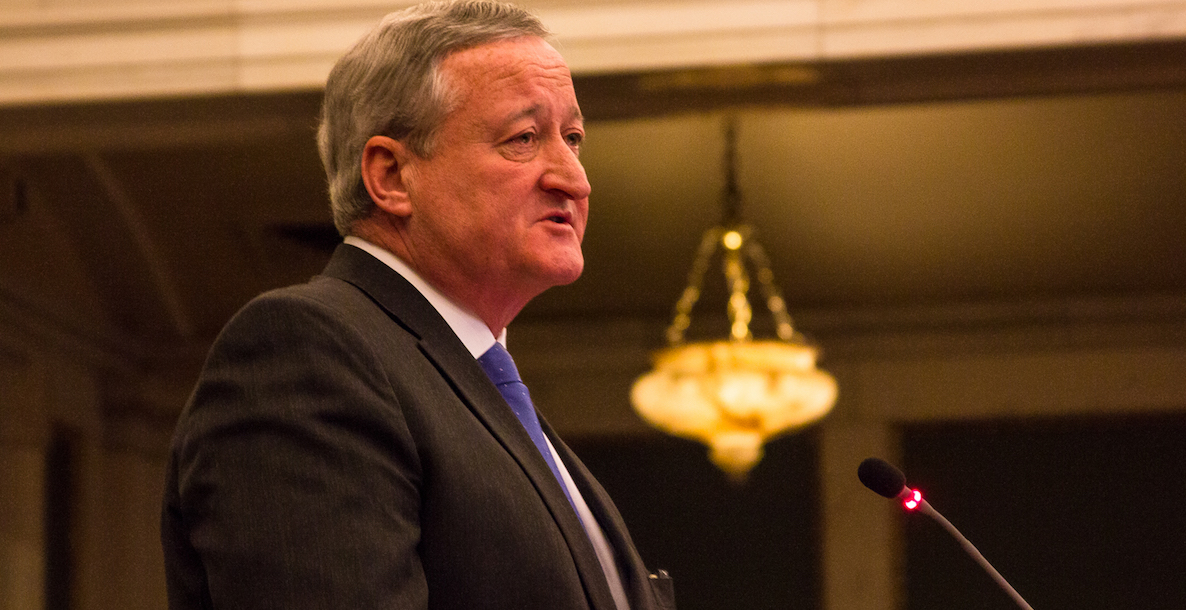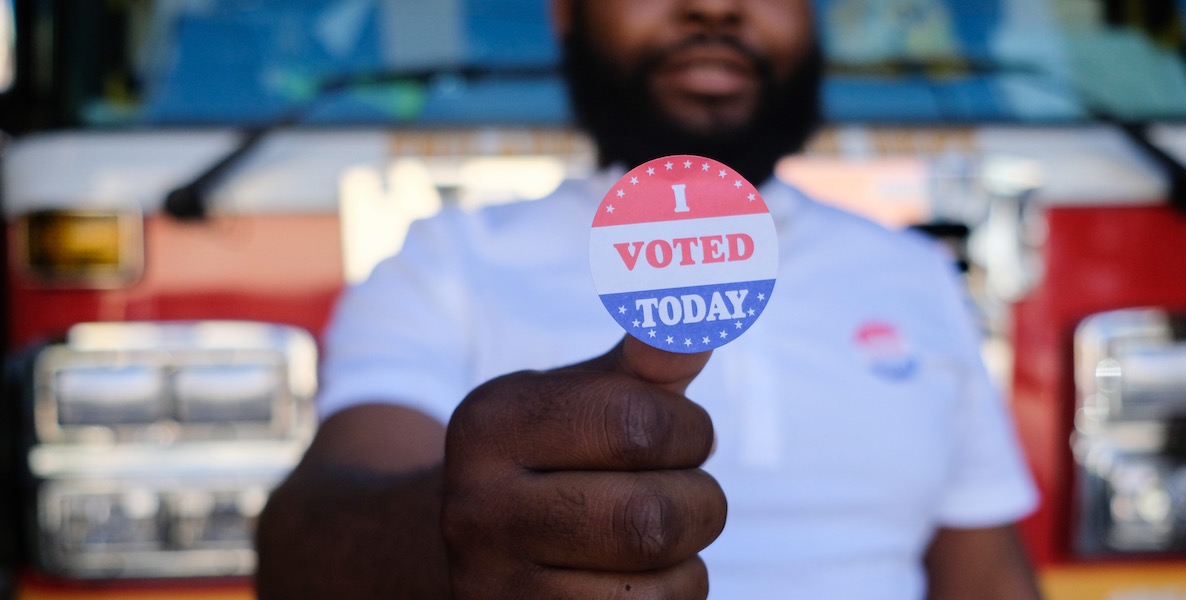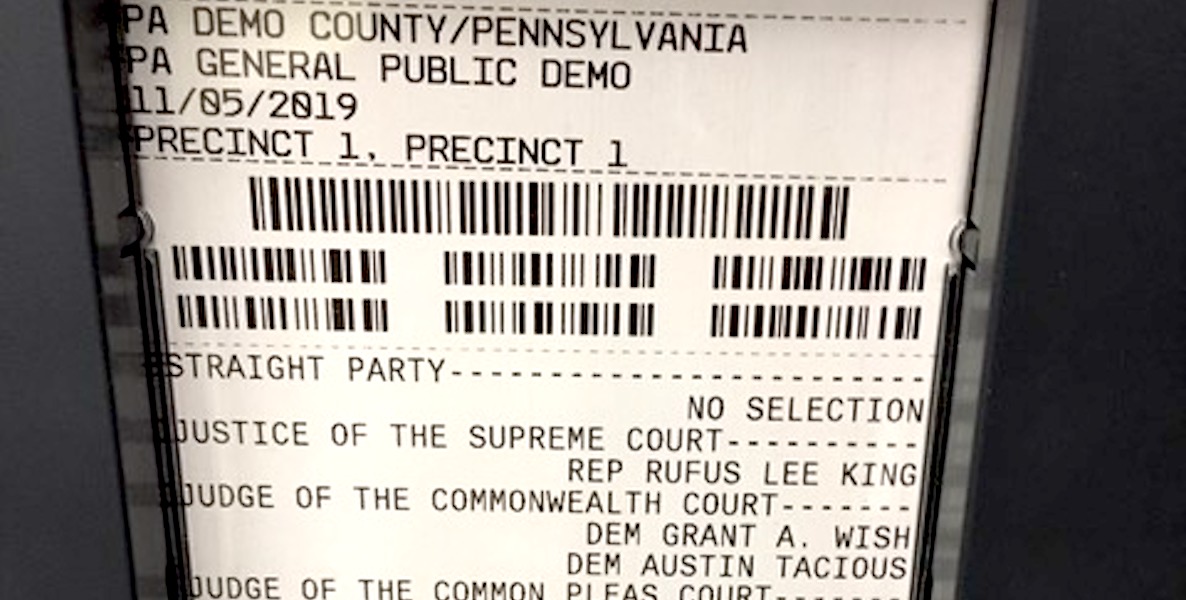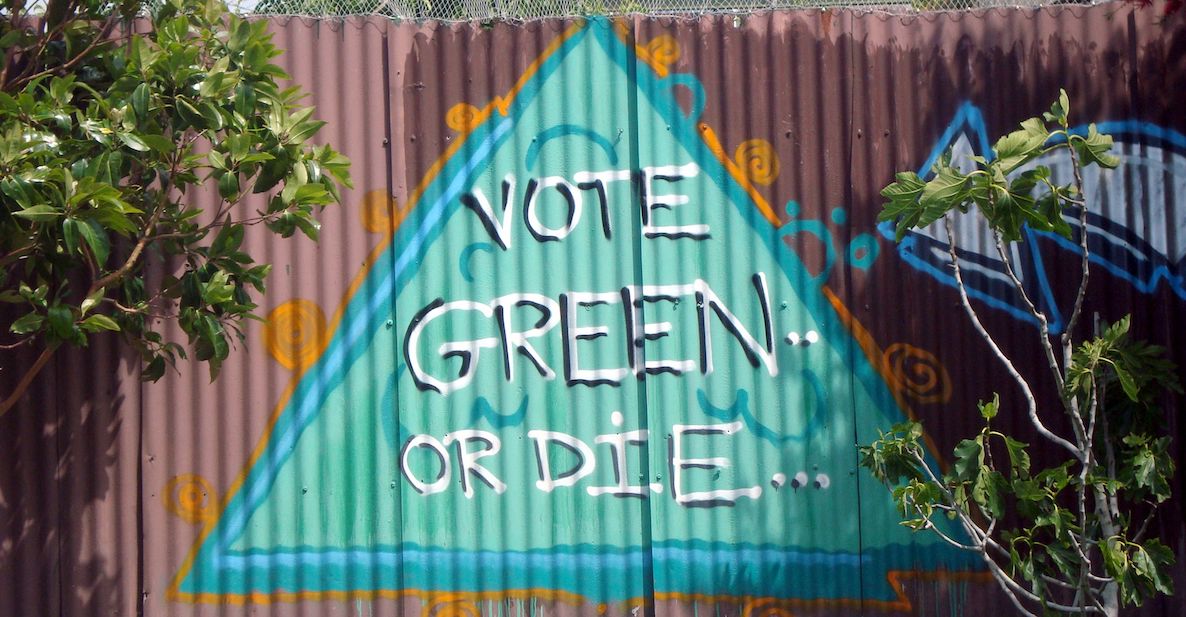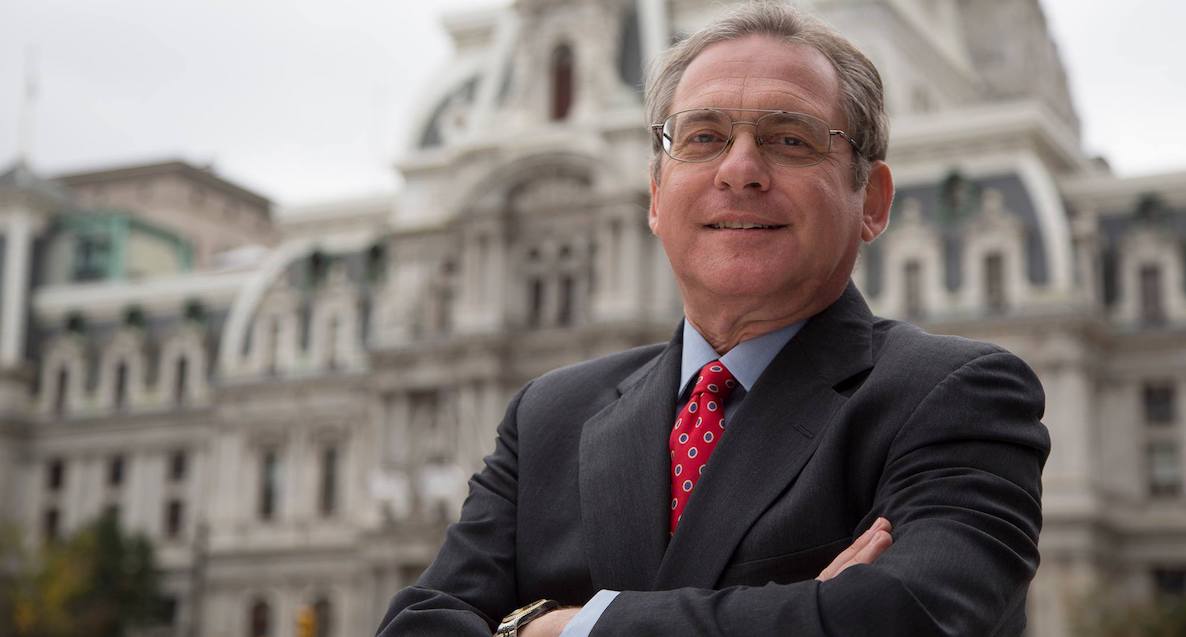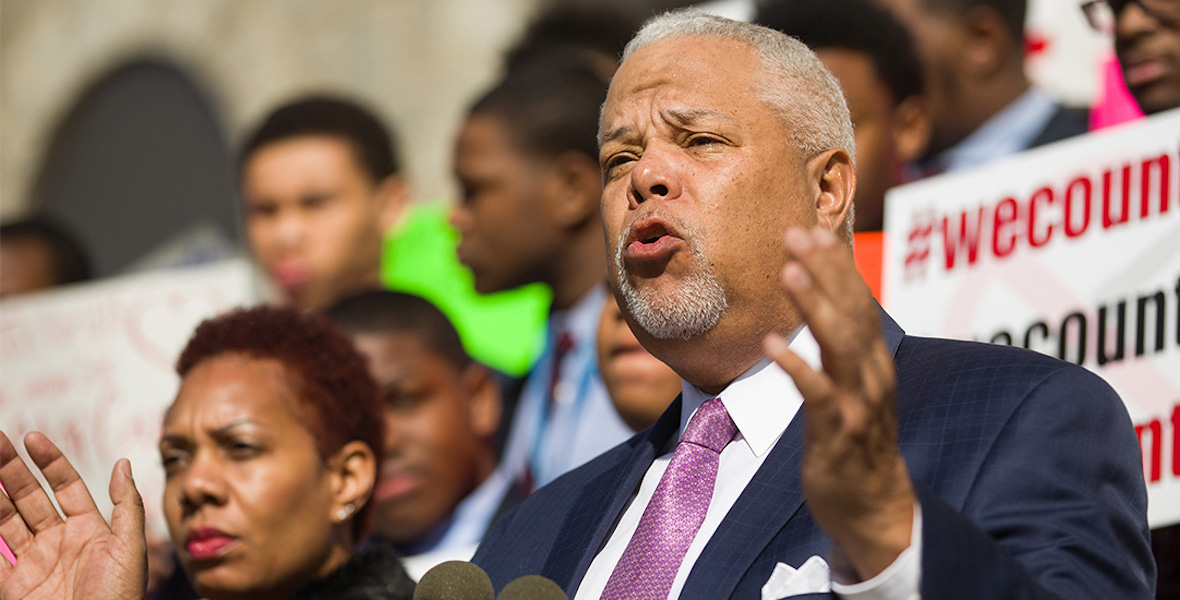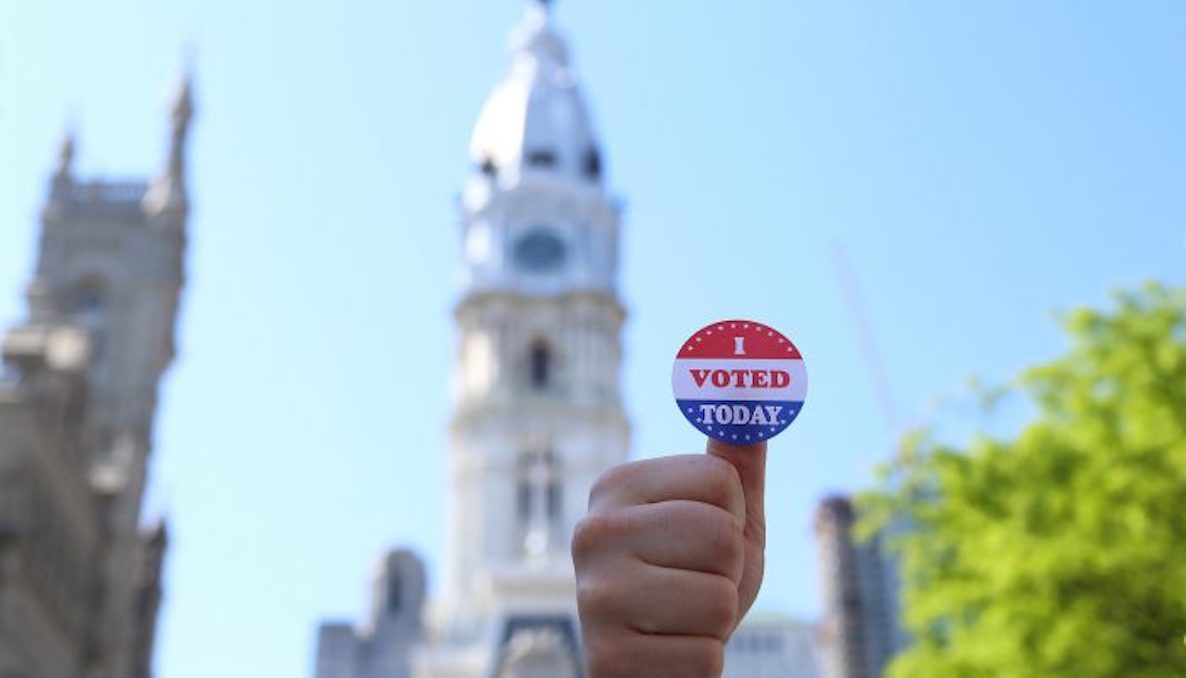“So, what did you think of the election yesterday?”
That was the question put to me while sitting down to dinner with a few buddies Wednesday night, some 24 hours after our polls had closed. I actually don’t remember what I said in response; in my own head, my voice on these matters often sounds like the teacher in Charlie Brown cartoons—a whiny mix of vague, chirping intonations. I do know, however, that it was a long filibuster, and that it was grumpy. When I paused to catch a breath, my complaints hung over the table.
“Well,” said one dinner companion under his breath, “I’m depressed.”
Way to go, Debbie Downer. For the next 24 hours, I checked myself: A lot of good had happened on Tuesday…why wasn’t that enough?
For example, Jamie Gauthier’s toppling of the West Philly Blackwell dynasty on Council was, as a certain former vice president would say, a big f’ing deal. A Blackwell had represented the 3rd Councilmanic district for 45 years, and incumbent Jannie Blackwell had long been an expert practitioner of Councilmanic Prerogative, the gentlemen’s agreement that cedes to district Councilmembers near total control of development in their fiefdom, turning them into de facto unchecked mini-mayors and obscuring the sunlight that would otherwise disinfect city land sales.
Is this what change looks like in Philadelphia? One stellar candidate toppling an incumbent, a couple of row offices that shouldn’t even exist turning over, and one independent-minded incumbent squeaking through?
That tradition is what enabled Blackwell to hold up the move of the Barnes Museum to Center City for years by blocking the relocation of the city’s Youth Detention Center to her district—until she got a $12 million grant for a community center named after her late husband. And it’s what led her to almost derail the sale of the long-vacant Provident Mutual Insurance Building at 4601 Market Street, reportedly at the bidding of a powerful developer and campaign donor.
Contact your elected officialsDo Something
But the absence of Blackwell isn’t nearly as exciting as the new presence of Gauthier, a practical problem-solver who has actually run stuff. She’s the former head of both the Fairmount Park Conservancy and the Sustainable Business Network, where she helped push through Council a tax credit for businesses, like B Corps, that extend their mission to the triple bottom line of People, Planet and Profits. She is a rarity in this town: non-ideological, pragmatic, and someone who has shown she can get stuff done.
So that’s pretty good, right? Plus, women were elected to office in Philadelphia. That’s kinda novel, no? And the Sheriff with those sexual harassment allegations went down, as did the Register of Wills, whose office was known to be an old school patronage mill. Hey, don’t forget Maria Quiñones-Sánchez, who now has stared down the political machine four times running. She’s badass.
So…why was I feeling so flat? I guess because I kept asking myself: Is this what change looks like in Philadelphia? One stellar candidate toppling an incumbent, a couple of row offices that shouldn’t even exist turning over, and one independent-minded incumbent squeaking through?
Articles about the primary electionRead More
Fact is, those green shoots of encouragement notwithstanding, the larger narrative of this election was really about City Committee—the machine—versus an ideological new guard, as represented most saliently by Reclaim Philadelphia, the group that grew out of Bernie Sanders’ 2016 campaign. Bob Brady’s City Committee did quite well on Tuesday, Gauthier, Sanchez and the row office upsets aside. But some of Reclaim’s favored candidates—like immigrant rights activist Erika Almirón—also exceeded expectations. Going forward, the dye is cast: The challenge to Brady and the Old Guard will come from the left—and not, apparently, from reformers.
And that’s what should depress all of us. Because Philadelphia doesn’t need ideological purity debates. It needs practical problem-solving, a sense of “we’re all in this together” communitarianism, and better politics. It’s a simple formula, being tested as we speak in Chicago, which we’ll get to:
Less Corruption + More Transparency + Widespread Participation = A City That Works For Everybody.
Unlike the machine, Reclaim and its cousin progressive groups are driven by ideology, but both have doubled-down on the transactional nature of our politics…rather than attacking the way those politics have long been practiced.
Instead, we’re getting sidetracked, allowing an internecine national political debate in the Democratic party to infect local politics. Over at WHYY the esteemed Dave Davies did a great job before the election of showing how Reclaim had become, in effect, the machine’s mirror image tactically, charging campaigns they’ve endorsed $5,000 or $10,000 for the benefit of their election day field ops, not unlike how Democratic ward leaders have long had their palms greased by favored candidates with street money. Unlike the machine, Reclaim and its cousin progressive groups are driven by ideology, but both have doubled-down on the transactional nature of our politics…rather than attacking the way those politics have long been practiced.
Watch Lori Lightfoot's inaugural addressVideo
Tellingly, in Chicago just this week, new Mayor Lori Lightfoot showed that there’s another way. “For years, they’ve said, ‘Chicago ain’t ready for reform,’” Chicago’s first gay, black, female mayor said in her inaugural address on Monday. “Well, get ready because reform is here.” At one point in the speech, she turned to address the body of 50 Aldermen—her city’s City Council, and directly addressed their tradition of Aldermanic Prerogative, the same tradition as our Councilmanic Prerogative.
“These practices have gone on here for decades. This practice breeds corruption,” Lightfoot said. “Stopping it isn’t just in the city’s interest; it’s in the City Council’s own interest…No official in the City of Chicago—elected or appointed—should ever profit from his or her office. Never. Ever…This requirement that people must give more to get access to basic city services must end. And it will, starting today.”
Before our primary, you’ll recall, we had the federal indictment of John Dougherty and his sidekick, Councilman Bobby Henon. Unlike in Chicago, however, corruption didn’t find its way into the campaign.
And that’s what she did, on day one, issuing an executive order for the city to take back zoning, planning, permitting and licensing from 50 Aldermen turned regional czars. Now do you see why I was feeling down? Where’s our Lori Lightfoot? After all, shortly before her upset primary win, it was the federal indictment of ultra-powerful Alderman Edward Burke, accused of soliciting favors from a Burger King seeking a building permit, that rocketed her to a stunning primary victory against four well-known political names in Chicago politics. But they all had ties to Burke, so she released a TV ad with mug shots of what she dubbed the Burke Four; in it she declared, “Candidates try distancing themselves from Ed Burke. The truth is, they’re all tied to the same broken Chicago machine—except me.”
About Lori LightfootRead Even More
Before our primary, you’ll recall, we had the federal indictment of John Dougherty and his sidekick, Councilman Bobby Henon. Unlike in Chicago, however, corruption didn’t find its way into the campaign. A telling moment occurred during the one televised debate, when Kenney was able to explain away his Dougherty ties by pointing out that both his opponents had also taken money from the labor leader. There was no Lightfoot-like candidate to occupy the higher moral ground.
Here’s the thing that makes Chicago’s Lightfoot saga an object lesson for us. The city’s activist left put up the most vigorous opposition to her candidacy, viewing with suspicion her time as a prosecutor at the U.S. Attorney’s office and her stint running Chicago’s Police Board, where she stood up to then-Mayor Rahm Emanuel. The website Stop Lightfoot called her “a law-and-order candidate trying to run as a progressive.”
The voters of Chicago saw through such cynical name-calling, and realized that the antidote to what they call The Chicago Way—machine politics—is not leftist ideology, but open and transparent government. Lightfoot is a liberal, but she’s not doctrinaire. Most importantly, if you voted, paid your taxes, and played by the rules, she told you in countless ways that she was in your corner. A city long accustomed to being used by its elected officials for personal gain had found its voice in one of its own.
The message of Lightfoot’s win—and the challenge of her governing—is that changing our politics can change lives. Here, we’ve taxed and spent ourselves into oblivion during Jim Kenney’s progressive mayoralty, and yet poverty is worse, (and worst in the nation), taxes and murder are higher, and economic growth lags behind 23 of the top 25 cities. Maybe we need to take a page from Lori Lightfoot’s playbook; maybe the real way to get to true progressivism is by first changing our politics. Only then can we realize the prophetic words of my hero, Jane Jacobs: “Cities have the capability of providing something for everybody only because, and only when, they are created by everybody.”
Photo by Anthony Pezzotti


